Affiliate links on Android Authority may earn us a commission. Learn more.
The best smartwatches for keeping track of your health

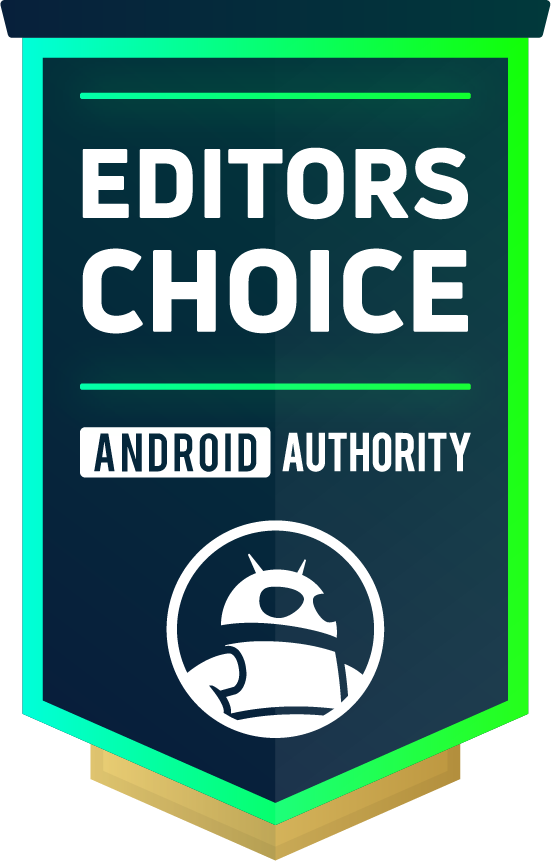



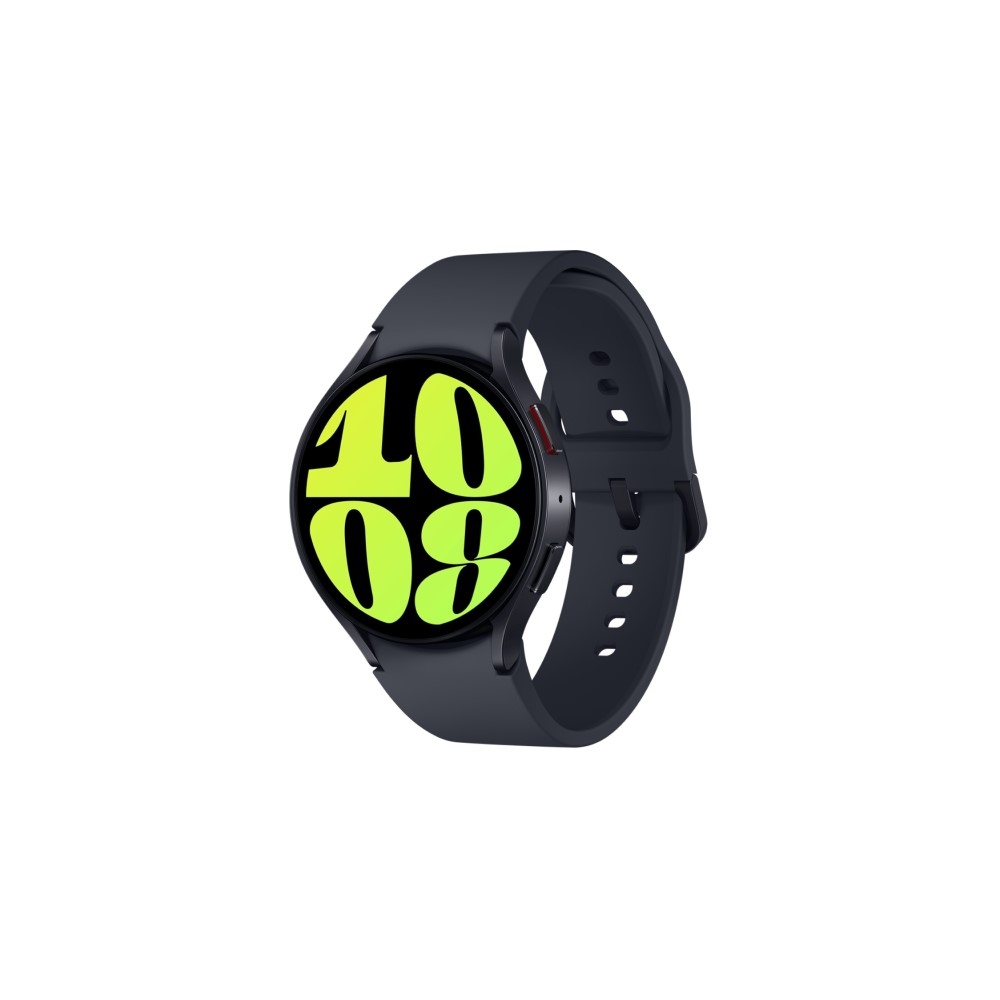

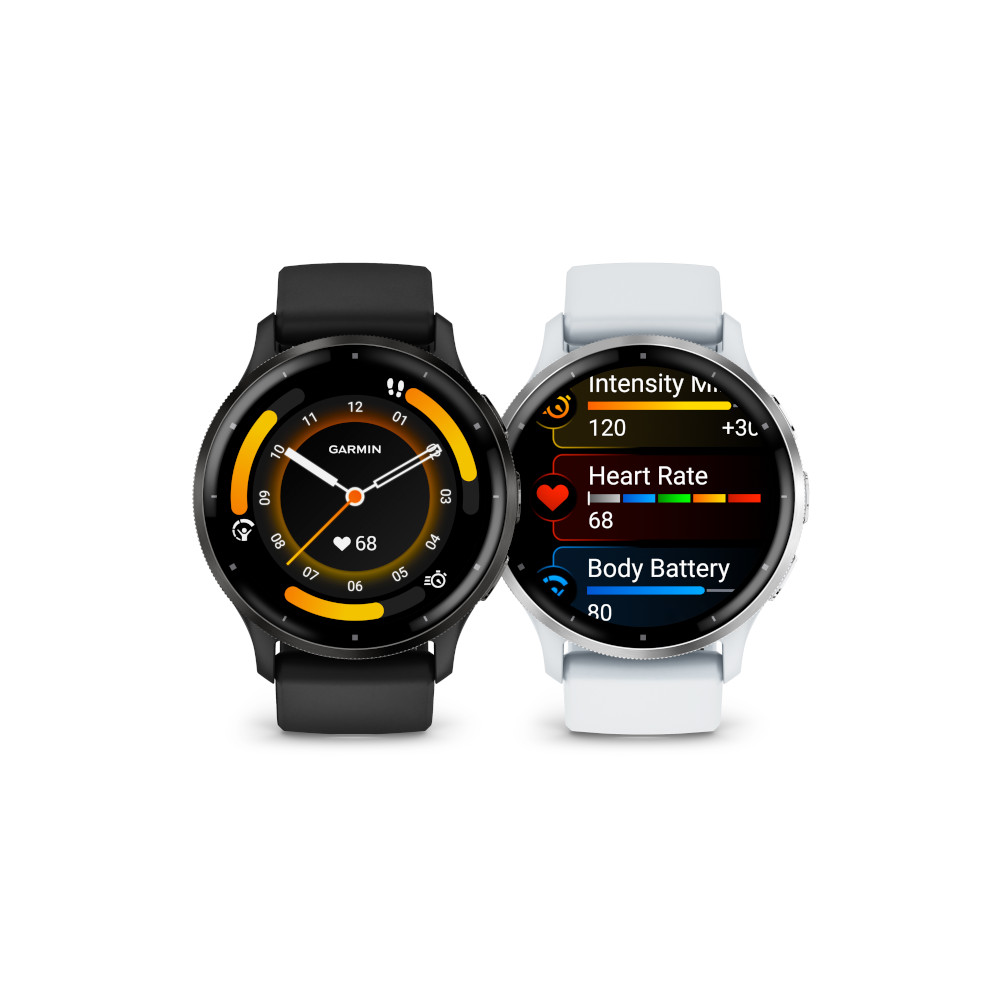

Thanks to the advances in wearable technology, smartwatches with capable health monitoring features are more accessible than ever. More devices are packing specialized sensors to keep track of your heart, blood pressure, and more. But which are the best smartwatches for health monitoring and tracking your wellness? We detail our recommendations below.
Buying the right smartwatch to monitor your health
Plenty of modern smartwatches pack almost every health monitoring feature imaginable, but not every device provides the specific focus some people need. For instance, while blood oxygen sensors are near ubiquitous, not every smartwatch packs a reliable medical-grade sensor, and some devices are better at tracking specific factors than others.
With this in mind, you’ll need to identify precisely what facet of your health you want to track. If you’re concerned about your heart health, consider a device with an ECG and a reliable heart rate monitor. What about stress and energy management? Consider a device that either has a dedicated stress sensor or takes heart rate variability into account.
Whatever you’re concerned or curious about, you’ll find a recommendation that fulfills your needs below.
The best smartwatches for health monitoring
- Apple Watch Series 9: This is the best smartwatch for menstrual cycle tracking thanks to its new skin temperature sensor. It also provides fertility estimates.
- Fitbit Sense 2: The Fitbit Sense 2 is the best smartwatch for stress management and general sleep monitoring thanks to its new cEDA sensor and Fitbit’s ever-reliable sleep-tracking smarts.
- Samsung Galaxy Watch 6: This is the best smartwatch for body composition and blood pressure monitoring. Although the Galaxy Watch 4 and 5 also pack both features, the Galaxy Watch 6 is the overall better device.
- Withings ScanWatch: The ScanWatch is the best watch for monitoring heart health, blood oxygen, and sleep apnea. Although a hybrid watch, the ScanWatch packs medical-grade ECG and SpO2 sensors.
- Garmin Venu 3: The Garmin Venu 3 is the best smartwatch for monitoring energy levels. Most Garmin watches feature the Body Battery functionality, but the Venu 3 includes useful morning and evening recovery and activity guidance tools — Daily Summary and Morning Report.
Apple Watch Series 9: The best smartwatch for menstrual cycle tracking


The Apple Watch Series 9 isn’t the first Apple Watch to debut with a temperature sensor — that honor goes to its predecessor — but it is a more complete offering beyond its health tracking kit. Nevertheless, the skin temperature sensor informs wearers body temperature changes, and this data is used to generate improved period predictions and retrospective ovulation estimates. The Apple Watch Series 9 is the best smartwatch you can buy if you want to track menstrual health.
In addition, the Apple Watch Series 9 retains an electrocardiogram (ECG) sensor, a reliable heart rate sensor, blood oxygen monitoring, and sleep tracking. It’s also a great smartwatch, especially if you’re entrenched in the Apple ecosystem. The wearable gains onboard Siri processing, which allows you to query any health stats on the fly, and a new gesture that lets you control the smartwatch with a double tap of the thumb and index fingers.
Notably, the Apple Watch Series 9 is the current subject of a lawsuit, and as a result, new models come with their blood oxygen monitoring feature disabled. This shouldn’t affect its cycle tracking features, but it’s worth noting nonetheless.
The Apple Watch isn’t for everyone, though. Those running Android smartphones can’t benefit from the skin temperature sensor or improved menstrual tracking.
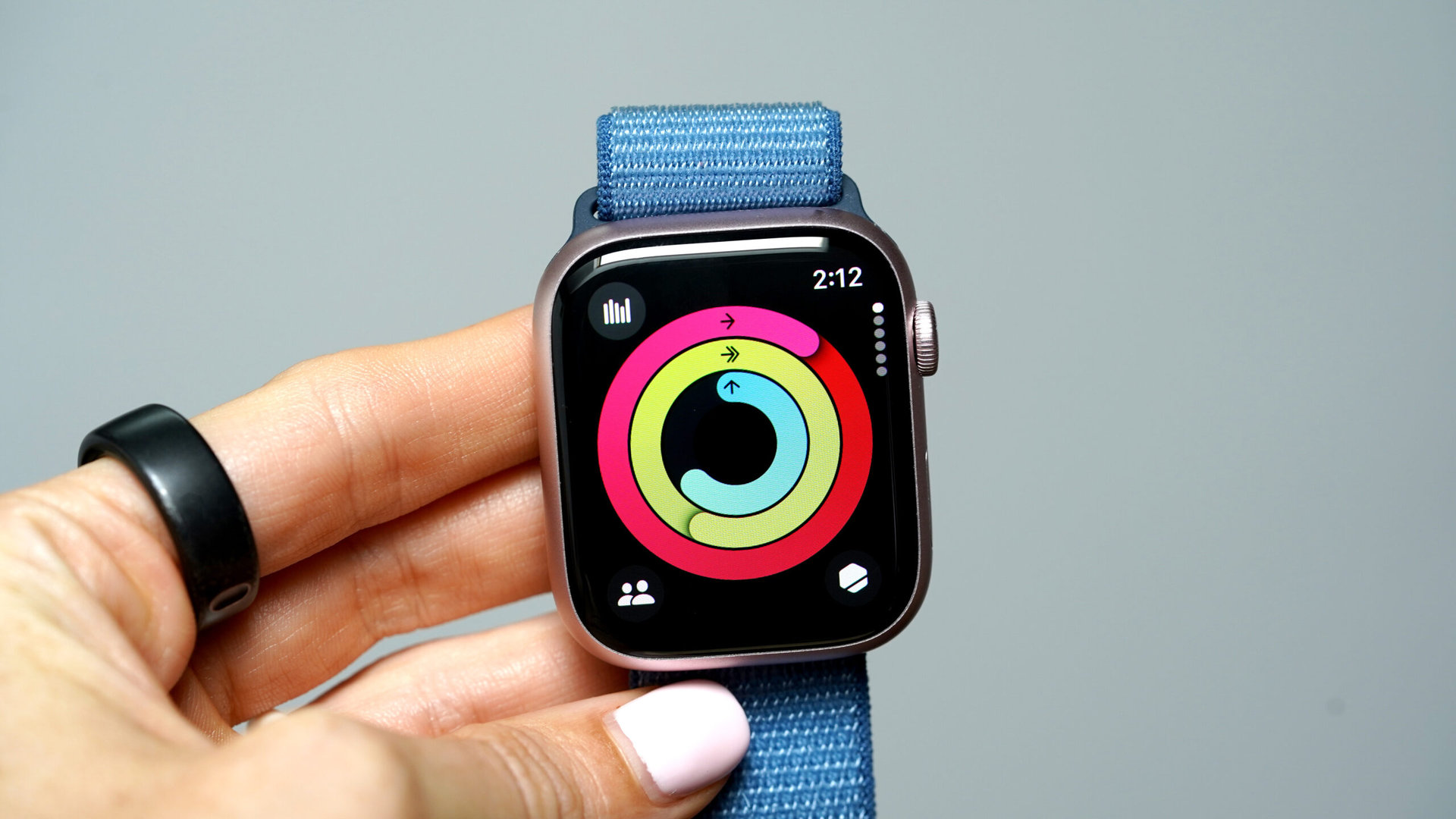
Pros
- Powerful new S9 chipset
- Brighter AMOLED display
- Expanded Find My Phone feature
- Onboard Siri query processing
- Excellent WatchOS 10 updates
Cons
- Key new features not available at launch
- Battery life still unimproved
Fitbit Sense 2: The best smartwatch for stress management and sleep monitoring

Speaking of Fitbit, the Sense 2 has plenty of tricks. In addition to the ECG sensor and skin temperature monitor, it now includes a continuous electrodermal activity (cEDA) sensor. This sensor records the changes in the skin’s electroconductivity due to the salts contained in sweat. These readings then inform Fitbit’s body response feature, which automatically gauges stress throughout the day. At the same time, the Stress Management Score provides a more understandable overview of a user’s stress levels. Finally, Fitbit bakes a mood tracker, making the Sense 2 a more intuitive reflection and relaxation smartwatch. When it’s time for bed, Fitbit’s detailed and useful sleep tracking steps up.
There are plenty of features (or lack thereof) to dislike about the Sense 2. It’s a dumber smartwatch than its predecessor, lacking Google Assistant, Wi-Fi, and third-party app support. Some features also remain locked behind the Fitbit Premium paywall.
Of course, if you want a proper smartwatch with the Sense 2’s health tracking kit and are willing to spend a little bit more, the Google Pixel Watch 2 ($349.99 at Amazon) is a worthy contender. It’s a very capable smartwatch, with accurate health tracking and more features beyond the Sense 2. That said, it costs a fair bit more.
Notably, if you’re specifically looking for a watch that detects potential sleep apnea symptoms, the Galaxy Watch series will gain that FDA-approved functionality later in 2024. Until this happens, I’ll continue recommending the Sense 2 to sleep-conscious users.
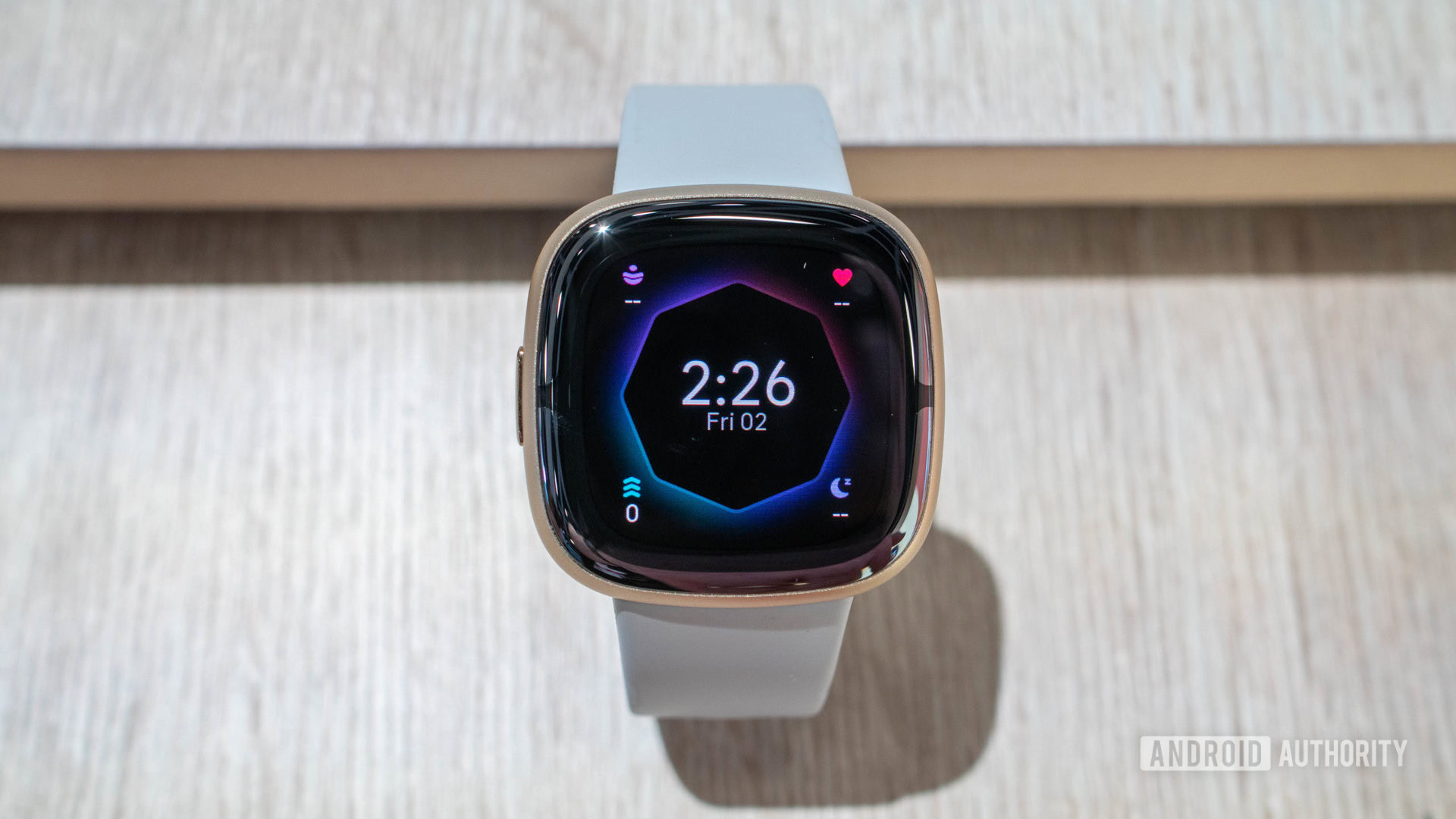
Pros
- Thin, light, and comfortable
- Terrific battery life
- Bright AMOLED display
- Snappy performance
- Fantastic sleep and stress tracking
Cons
- Unreliable GPS tracking
- No Google Assistant support
- No third-party apps
- New Fitbit OS needs work
Samsung Galaxy Watch 6: The best smartwatch for body composition and blood pressure monitoring


The Galaxy Watch 6 is the best Wear OS smartwatch you can buy right now, and it’s the only one on this list packing a bioelectric impedance analysis (BIA) sensor. Like the Series 9, the Galaxy Watch 6 wasn’t the first in its line to pack the feature — both the Galaxy Watch 5 ($162.57 at Amazon) and Galaxy Watch 4 ($199.99 at Samsung) can lay claim to it. However, the Galaxy Watch 6 is a more polished version of both devices overall.
The BIA sensor can measure the body’s composition using electric microcurrents, gauging skeletal mass, muscle mass, water retention, and fat mass. These details are beneficial for those looking to build muscle or lose weight.
Samsung has also carried over blood pressure monitoring smarts to the Galaxy Watch 6; however, it’s not without issues. You’ll need a portable blood pressure cuff to calibrate the feature and recalibrate it regularly. The feature is also exclusive to Samsung smartphones.
The Galaxy Watch 6 is a great smartwatch with reliable sleep tracking, SpO2 monitoring, heart rate tracking, and an ECG. It also features several design improvements, from its larger display and smaller bezels to a slightly bigger battery.
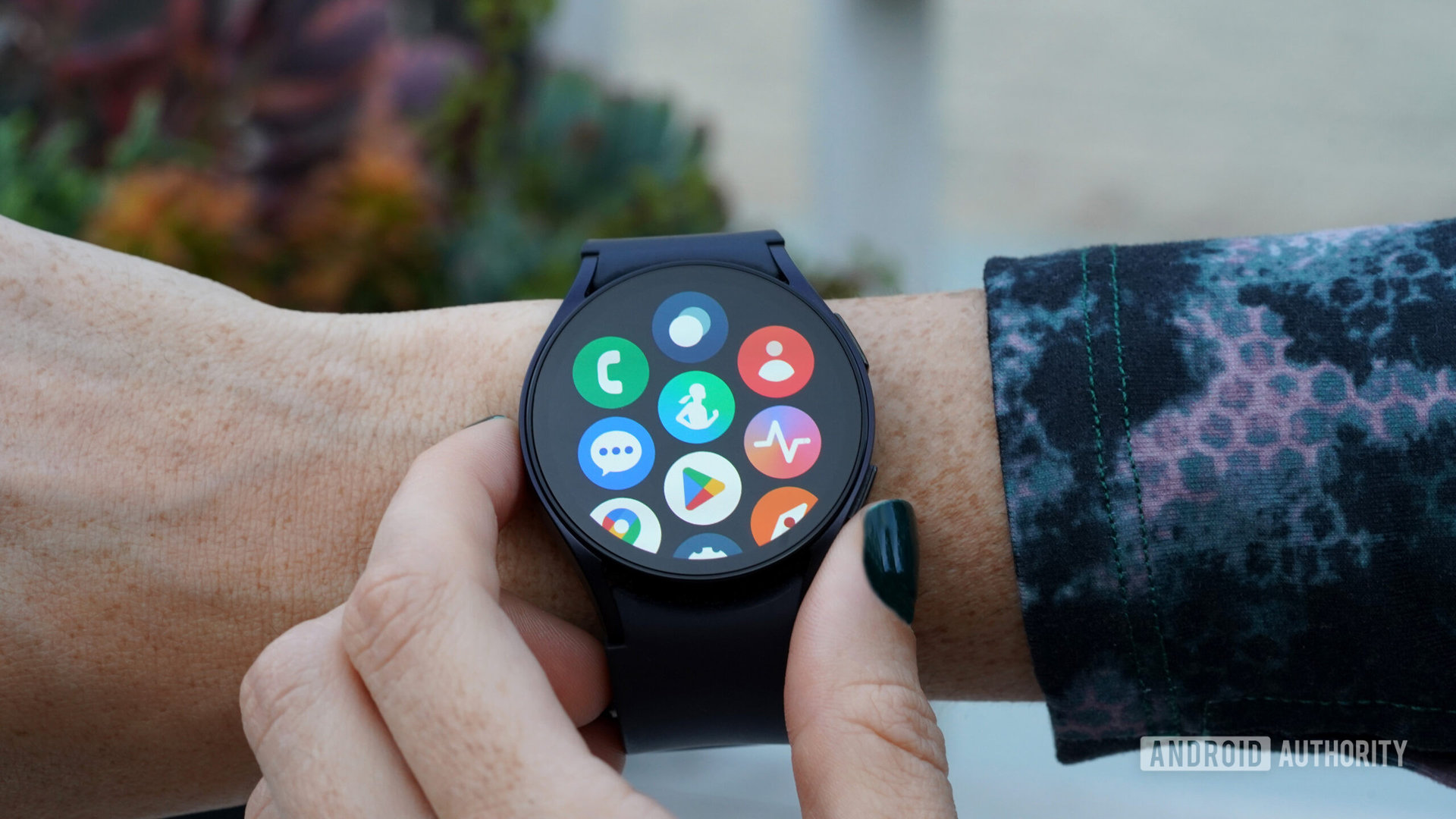
Pros
- Bigger, brighter AMOLED display
- Snappy Wear OS 4 software experience
- Sporty yet tasteful aesthetic
- User-friendly quick-release strap
- $100 less than Watch 6 Classic
Cons
- Mostly minor improvements over Watch 5
- Unreliable touch bezel
- Inconsistent GPS and heart rate data
- Some features only available to Samsung phone users
Withings ScanWatch: The best watch for monitoring heart and breathing health


The ScanWatch is a hybrid watch that packs far fewer smart features than the other devices on this list. However, it makes up for this with clinically validated sensors. This includes a medical-grade pulse oximeter to measure oxygen saturation levels in the blood. It also joins a medical-grade ECG sensor which can scan for signs of atrial fibrillation (AFib) or irregular heartbeats. ECG data can also be exported or printed to present to a medical professional if need be.
There’s also a nifty set of features for those who struggle to breathe. A Respiratory Scan feature considers heart rate, respiratory rate, and blood oxygen levels to help users understand if they experience potential breathing disturbances overnight. These details are also presented in graph form, informing users of any potential sleep apnea issues.
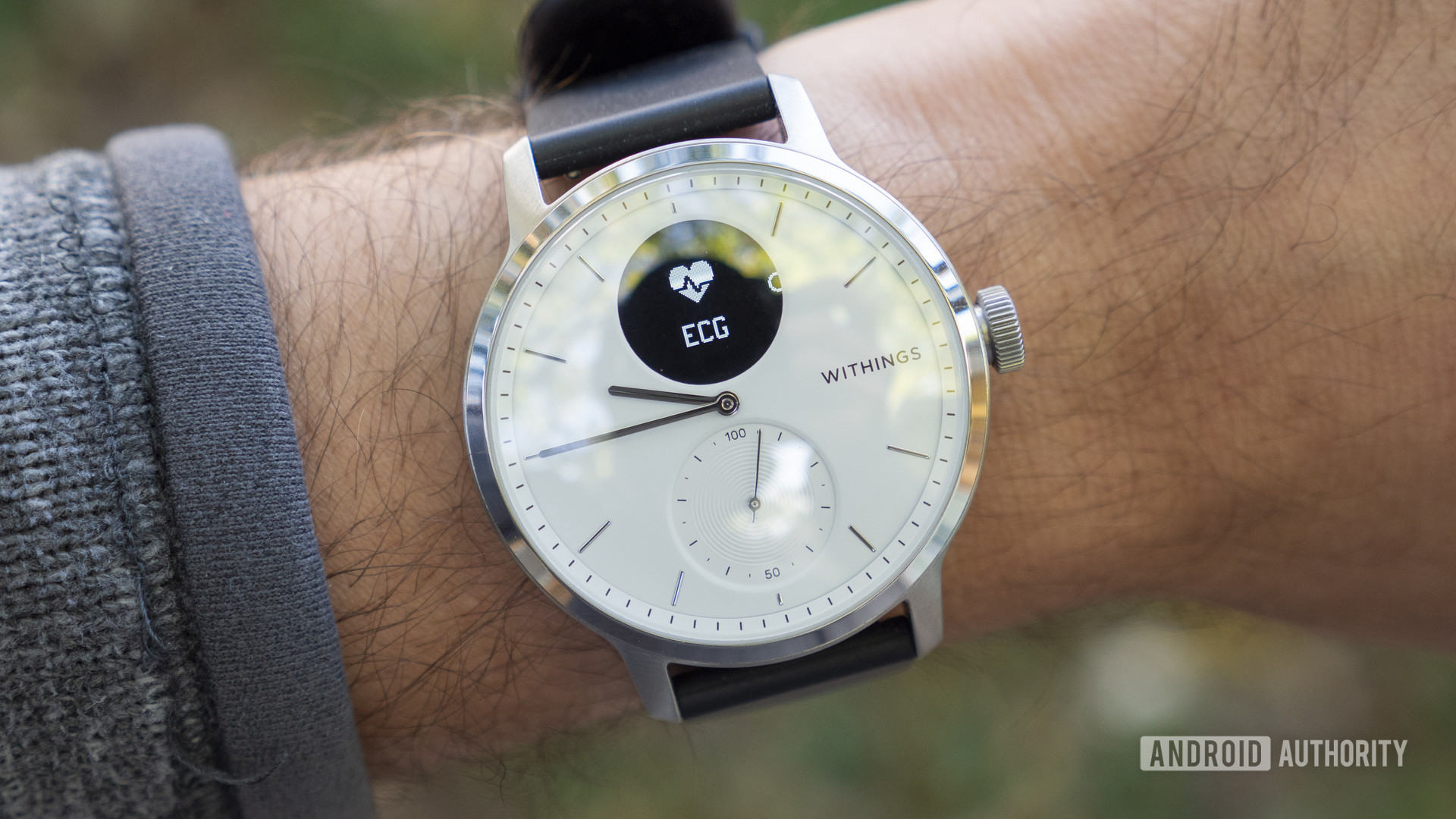
Pros
- Premium, classy design
- Long-lasting battery
- Health Mate app is well-designed and easy to use
- Potentially lifesaving and easy-to-use ECG monitor
- Clinically validated AFib and breathing disturbance notifications
- Fantastic sleep tracking
Cons
- Small display limits smart features
- Few advanced fitness features or insights
Garmin Venu 3: The best smartwatch to monitor energy levels


Finally, the Garmin Venu 3 is worth a mention for those particularly interested in monitoring their energy reserves during the day and their recovery overnight. Garmin’s latest smartwatch packs the nifty Body Battery feature that combines heart rate variability, stress, and activity data to calculate the user’s energy reserves. A number between 1 and 100 is generated, with 100 being the maximum energy. It’s an excellent and surprisingly accurate measurement of energy levels.
It also brings new features to the series, from Nap detection for improved all-round sleep monitoring and Daily Summary, which provides an overview of your health each night. Morning Report is still available for you in the morning.
While the Garmin Venu 3 lacks the ECG features of the Garmin Venu 2 Plus ($449 at Amazon), I still think it’s Garmin’s best smartwatch. Nevertheless, if you can find the latter at a good price, it’ll also be an excellent energy monitoring companion.
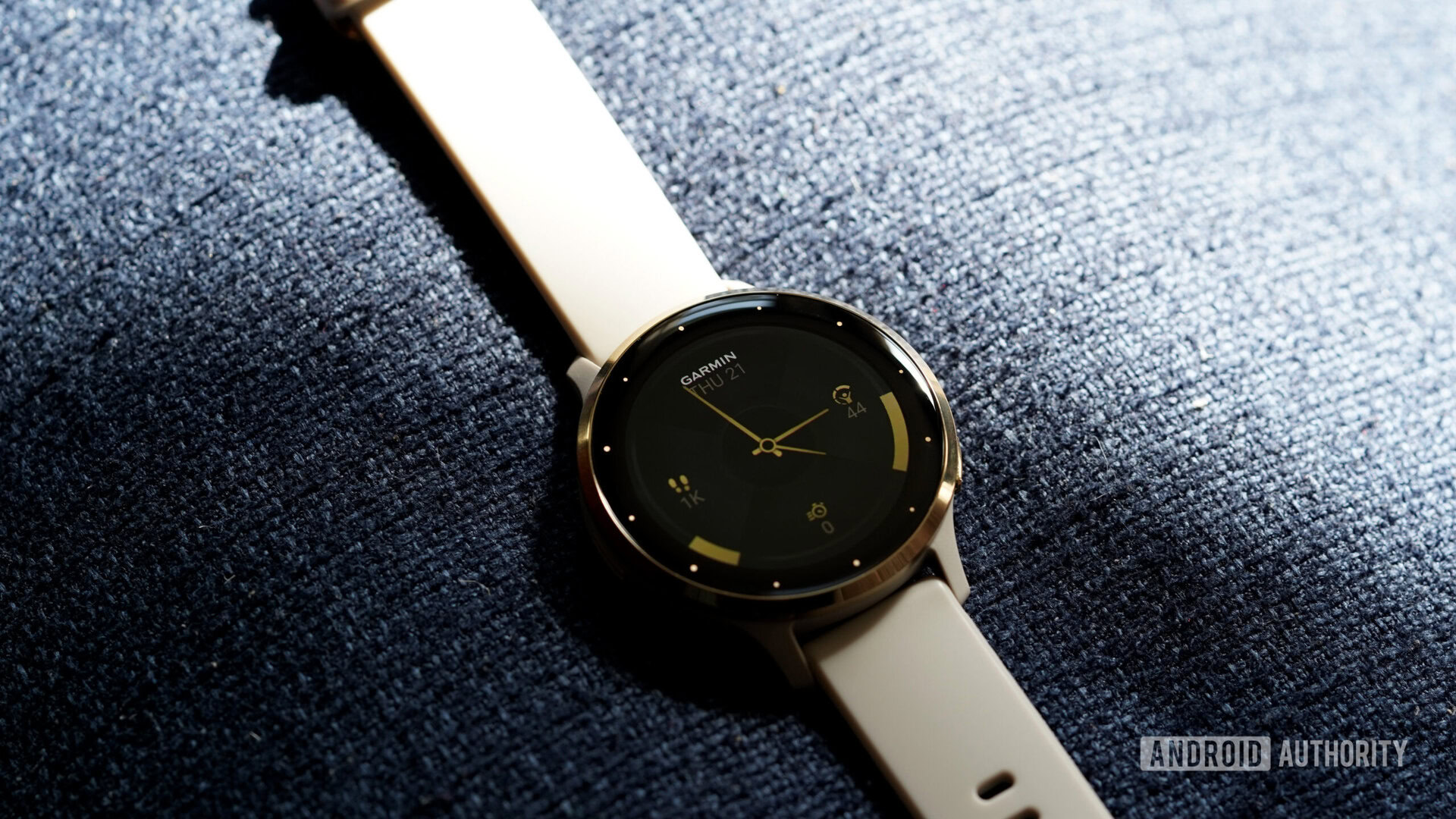
Pros
- Highly accurate GPS and heart rate sensors
- Automatic nap detection and sleep coaching
- On-device phone call and voice assistant support
- Up to 14-day battery life
- Larger display
Cons
- No ECG app
- Pricey compared to competitors
- No LTE model
Honorable mentions
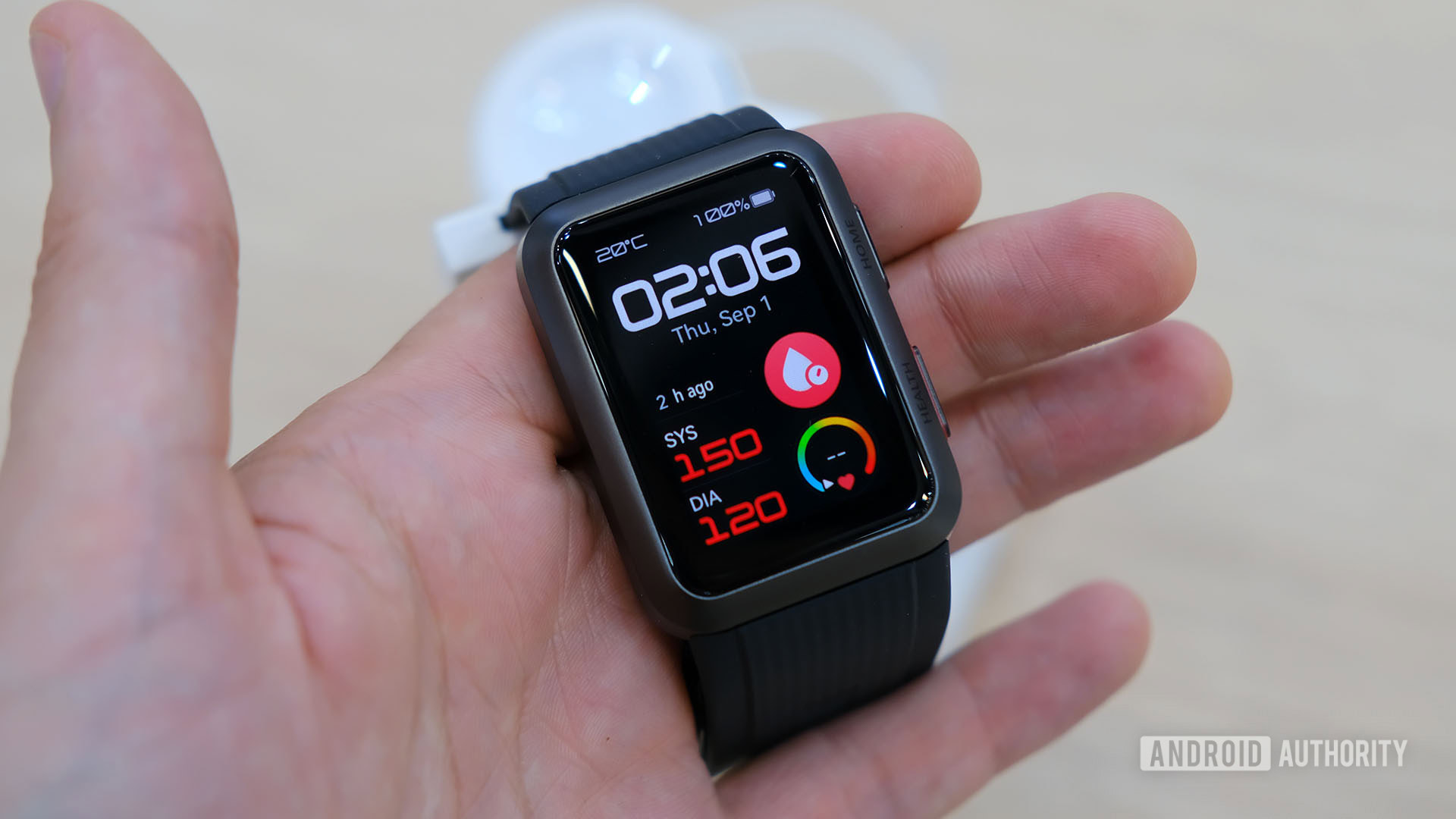
If you’re looking for more recommendations, find our list of honorable mentions below.
- Fitbit Versa 3 ($158 at Amazon): If you don’t need the Sense 2’s cEDA sensor, the Versa 3 is a solid all-round tracker that should appease most buyers.
- HUAWEI Watch D ($132 at Huawei): Few smartwatches can claim to measure blood pressure without a third-party cuff, but the HUAWEI Watch D does just that.
- Samsung Galaxy Watch 4 ($279.99 at Samsung): At the right price, the Galaxy Watch 4 is an excellent Galaxy Watch 6 alternative, packing the same body composition and blood pressure features as its successor.
- Apple Watch Series 8 ($329 at Amazon): If you need an Apple Watch with a working blood oxygen sensor and can’t find a used Series 9, the older Series 8 is your best bet.
FAQs
Unfortunately, no. No big brand smartwatch can monitor blood sugar levels just yet.
Smartwatches are not medical devices and, therefore, should not be used for diagnosis. However, their data could be valuable for spotting potential problems. If you’re feeling unwell, contact a doctor.